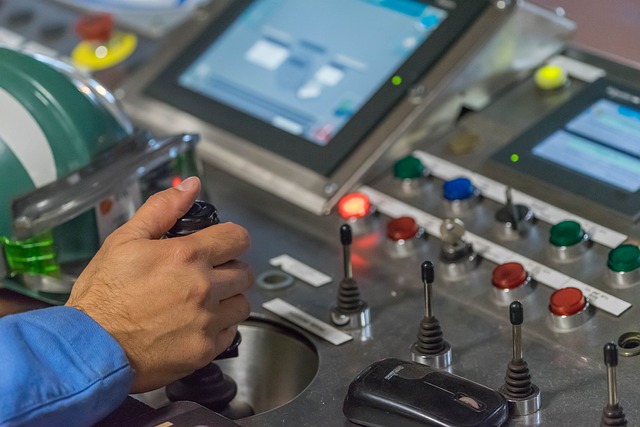Understanding the Importance of Networking at Conferences
Networking at conferences provides a golden opportunity to build professional relationships. These events are not just about gaining knowledge; they are vibrant ecosystems where ideas bloom and collaborations take root. When you attend an industry event, you step into a melting pot of minds, filled with potential partners, mentors, and like-minded peers. Each handshake could lead to a new project, valuable insight, or even a life-changing career opportunity.
The first step in effective networking at conferences is to shift your mindset. Understand that networking is not just about handing out business cards; it is a genuine effort to form meaningful professional relationships. A conference brings together experts and enthusiasts from various sectors of the industry. It’s your chance not only to learn but also to connect with those who might inspire you, share innovative ideas, or help you overcome challenges. Investing time in these relationships can yield opportunities that last well beyond the duration of the event.
Moreover, conferences often gather people who share your passions and interests. Picture yourself engaged in discussions about your field’s latest trends and challenges. Being in such an environment eliminates the usual barriers, aligning you with professionals who speak your language. These connections can lead to collaborations, mentorships, or even friendships that bolster your career trajectory. Therefore, approaching networking as an avenue to cultivate genuine connections will set you up for success.
Preparing for the Conference: The Foundation of Effective Networking
Preparation is key when it comes to networking at conferences. Equip yourself with knowledge about the event, the speakers, and the participants. Before you even step foot into the venue, spend time researching the agenda. Identify the sessions that interest you the most. Knowing who’s who can significantly enhance your networking strategy. You might even want to jot down a few potential questions or topics you’d like to discuss with particular speakers or attendees.
Creating an effective networking strategy also involves identifying your goals. What do you want to achieve at this conference? Are you looking for job opportunities, seeking mentorship, or perhaps trying to pitch a new idea? Setting clear objectives helps you remain focused and intentional in your interactions. Once you know what you want, write it down. This visibility can guide your conversations, keeping you on track toward your networking goals.
Another vital part of your preparation involves polishing your personal pitch. Introduce yourself confidently and succinctly during your interactions. Create a compelling elevator pitch that summarizes who you are, what you do, and what unique perspectives you bring to the table. Practice saying it out loud until you feel comfortable and natural. A strong introduction lays the groundwork for more in-depth conversations, making it easier for others to remember you even after the event concludes.
Mastering the Art of Conversation: Your Key to Networking Success
The true essence of networking at conferences lies in the conversations you have. While it might be tempting to focus solely on presenting yourself, remember that genuine dialogue requires a two-way street. Ask open-ended questions that invite more than just simple yes or no answers. For instance, instead of asking if someone enjoyed a particular session, you might inquire what key takeaway resonated most with them. Such questions promote deeper discussions and facilitate meaningful connections.
Active listening is another cornerstone of effective conversation. Pay attention to the nuances in what others share. This skill displays respect and interest. When you truly listen, you’re not just waiting for your turn to speak; you’re absorbing information that might ignite a fantastic exchange of ideas. This way, the discussion flows more naturally, and you can integrate your thoughts more effortlessly into the conversation.
Moreover, don’t underestimate the power of empathy in these interactions. Empathizing with someone’s experiences can go a long way in building rapport. Your ability to understand their challenges can forge a bond that may well outlive the conference itself. When you genuinely care about the perspectives and stories of others, they are more likely to reciprocate and view you as a trustworthy connection. This is where professional relationships blossom into lasting partnerships.
Leveraging Social Media during Conferences
In our digital age, leveraging social media during conferences can enhance your networking efforts significantly. Platforms like Twitter, LinkedIn, and Instagram are invaluable tools for connecting with attendees, speakers, and experts. Before the event, follow hashtags related to the conference. Engaging with posts or sharing your thoughts on the insights shared can pique interest among other attendees. This proactive engagement positions you as an active participant, making it easier to strike up conversations once you are at the conference.
During the event, consider live-tweeting your favorite sessions or sharing key quotes via Instagram Stories. Tagging speakers and other attendees can lead to meaningful digital conversations. This approach opens doors for people to reach out to you and can establish connections even before you meet face-to-face. Social media essentially acts as a bridge, connecting you with industry players in real-time and creating openings for deeper discussions later.
Post-conference, social media remains a vital tool for nurturing relationships. Don’t hesitate to connect with people you met at the event on LinkedIn. Always include a personalized message when sending a connection request. Referencing your conversation will jog their memory and strengthen the bond. Moreover, keep the conversation going by sharing industry news or relevant articles that might interest your new connections. This consistent interaction keeps you on their radar, ensuring that your professional relationships continue to grow.
Follow-Up: The Key to Sustaining Your Network
No networking effort is complete without a strong follow-up strategy. After the conference, plan to reach out to those you connected with within a few days. Timing is essential here; the sooner you reach out, the fresher your connection remains in their mind. A simple and personalized email expressing your appreciation for their insights or recalling a specific detail from your conversation goes a long way. It shows that you value the connection and encourages dialogue.
Consider linking resources that might benefit your new contacts based on your conversation. If someone mentioned they wanted recommendations for certain tools or articles, take a moment to research and share them. This helpfulness leaves a positive impression and establishes you as a valuable part of their network. When you demonstrate a willingness to provide value, you lay the foundations for a mutually beneficial relationship.
Furthermore, don’t shy away from creating regular touchpoints with your network. Schedule periodic check-ins or send updates about your career progress or projects you’re working on. A casual message to see how they are doing or to comment on their professional achievements helps maintain the bond over time. This consistency turns casual acquaintances into trusted professional relationships, enhancing your networking strategy’s long-term effectiveness.
Leveraging Networking to Its Full Potential
Ultimately, networking at conferences empowers you to shape your career in diverse ways. As you delve deeper into professional relationships, you carve out pathways to opportunities that align with your aspirations. Networking takes practice, so don’t hesitate to put yourself out there. The more you engage, share, and exchange ideas, the more adept you become at fostering connections.
Moreover, remember to respect the unique perspectives and backgrounds of the people you meet. Acknowledge that everyone brings something different to the table, and be open to learning from those differences. Celebrate the rich tapestry of experiences among your connections, as this diversity fosters innovation. Embrace the dynamic learning environment that industry conferences provide – and let your networking flourish.
Frequently Asked Questions (FAQ)
1. How should I prepare before attending a conference for networking?
Start by researching the event agenda, identifying key sessions and speakers that interest you. Set clear networking goals, and develop a succinct elevator pitch to introduce yourself. Prepare open-ended questions to facilitate deeper conversations, and do not forget to bring plenty of business cards!
2. What strategies can I use to initiate conversations with strangers at conferences?
Begin with a friendly introduction, and ask open-ended questions about their conference experience. You could inquire about their insights on specific sessions or their work and interests. Active listening reinforces engagement and helps you respond naturally, enhancing the conversation flow.
3. How can social media help in networking at conferences?
Social media enables you to connect with other attendees and speakers in real-time. Use conference hashtags to engage with posts, live-tweet insights, and share experiences on platforms like LinkedIn. Following up digitally after the event can help maintain the relationships you build.
4. What should I do after the conference to maximize my networking efforts?
Follow up with your new connections within a few days. Send personalized emails that mention something specific you discussed. Offer valuable resources or updates about your interests, and keep communication going through periodic check-ins to nurture those relationships.
5. How do I maintain and grow my professional relationships after the conference?
Sustaining relationships requires active involvement. Stay in touch through emails, sharing relevant articles or updates on projects. Express interest in their achievements or professional progress. Regular communication helps turn initial connections into long-lasting professional relationships.



